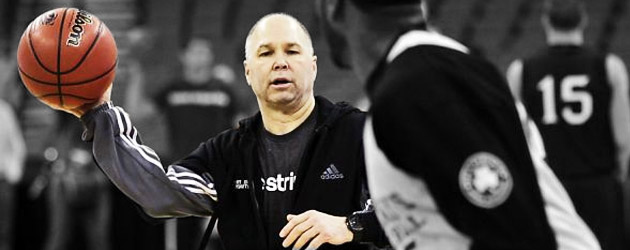RB (cont.): At St Mary’s I can’t take on some low D1 or low mid-major and think I’m to beat those guys. So we had to figure out a way to get as good of a player that people didn’t know were as good. One of those ways is going where there is less competition to recruit and that was international. And in particular for us that has been Australia, which has been good to us. We are are high enough up in the pecking order there where we can get some of their best players.
 And as we’ve gotten better we can get some good ones in the US that people know about. Before we had to go get an Omar Samhan where people misevaluate him or his game wasn’t refined and he was 40 pounds overweight. Or Mickey McConnell who slipped to us. We just had to really be on top of things when a guy comes across that was good, that was underrated, that we could get. And there is a window of time you can get that guy before everybody else figures it out, so you have to be ready to strike.
And as we’ve gotten better we can get some good ones in the US that people know about. Before we had to go get an Omar Samhan where people misevaluate him or his game wasn’t refined and he was 40 pounds overweight. Or Mickey McConnell who slipped to us. We just had to really be on top of things when a guy comes across that was good, that was underrated, that we could get. And there is a window of time you can get that guy before everybody else figures it out, so you have to be ready to strike.
I think we’re still like that a little bit, I think everybody is like that somewhat. But we can go head to head with schools in our league now and do pretty well with recruiting.
SM: Very interesting. Do you think it’s a coincidence or something more, that you and Mark Few up at Gonzaga both get a lot of international players? You guys are both in the same conference, same area of the country, and have had some success in international recruiting. Do you think it’s where your teams are, like you said earlier where there is a tipping point of 50 or something (schools) where you can’t get that player and you have to go outside the box and you have to go international? So if you want to make Sweet 16s or win your conference you have to do those types of things, recruit differently, and look for guys that slip. So do you think it’s a coincidence or just more about how you two are or something about the West Coast Conference?
RB: There might be and there are probably are a few variables. One of them would be that we’ve done it long enough where we know the level of player we need. We won’t just take a guy to take a guy. The other thing is that when you have to get a guy who is excited about coming to our program, we can already get him. It has got to be a 50-50 there. It doesn’t mean he isn’t good, or it doesn’t help your program if you beg a guy to come. Like he’ll come because he has nothing else better and we don’t want that. I think we probably both follow that philosophy in our recruiting. We have pride in our program and our program has done some nice things. So we want some players to come in that are excited to be part of our program. We don’t want guys who come because they can’t get the four or five Pac-12 schools they wanted.
SM: From a recruiting sense at this point you guys have some pipelines but just getting information on people in Europe or Asia or Australia; is that tough for people who haven’t laid down pipelines or don’t have too many connections like you have? And is that how you are able to prosper? And then how was it when you were starting out with finding videos on players and where would your assistants go to get information? How does that all work for you?
RB: You first question yes it is tough. You don’t necessarily know if a guy you are recruiting is good or not. So it’s hard to get excited about recruiting a player if you are really not sure and you have to see him. Then we see him it’s a little bit different. You’re seeing him in a European U-18 tournament, it’s a little different than seeing in an AAU tournament. The games are more competitive and they aren’t as athletic. So you have to figure out who’s good before you recruit and that takes a little while. Then you have to figure out if you can get this guy and how you can get him interested in leaving his country to come over. It all takes time and experience.
So as a program are you going to invest this much time into international recruiting and maybe not see any results for a year or two. Or am I just going to go to Gary Mullins Juco event, do a good job on the JCs, and get a guy that way. So you don’t have so much time and as a head coach you have to make some decisions on where you are going to invest your time.
 Posts
Posts
